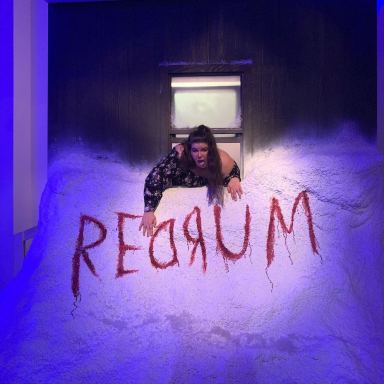5 Reasons ‘Civil War’ (2024) is a Great Movie
Also: Why California and Texas really teamed up. 🤝
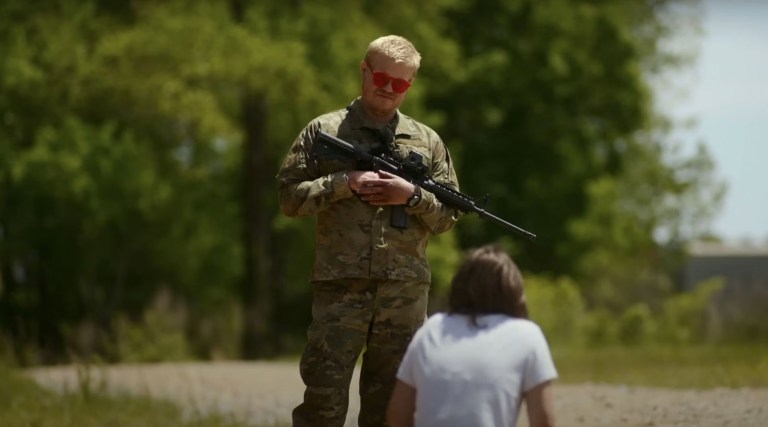
As my friend and I left the cinema on opening night, we had mostly good things to say about Alex Garland’s Civil War. The film has also been a modest success, it is A24’s first movie to open up at #1 at the box office. Both of these things made it surprising to open up Letterboxd and see so many people had a negative reaction to the Civil War. I decided to outline why I think Civil War is a great movie and address some of the common complaints from my perspective. If you haven’t seen the film, you can read on until the spoiler warning without learning anything that might ruin the movie for you.
Table of Contents
Why Civil War (2024) is a good movie
1. Kirsten Dunst’s complex character, Lee Smith
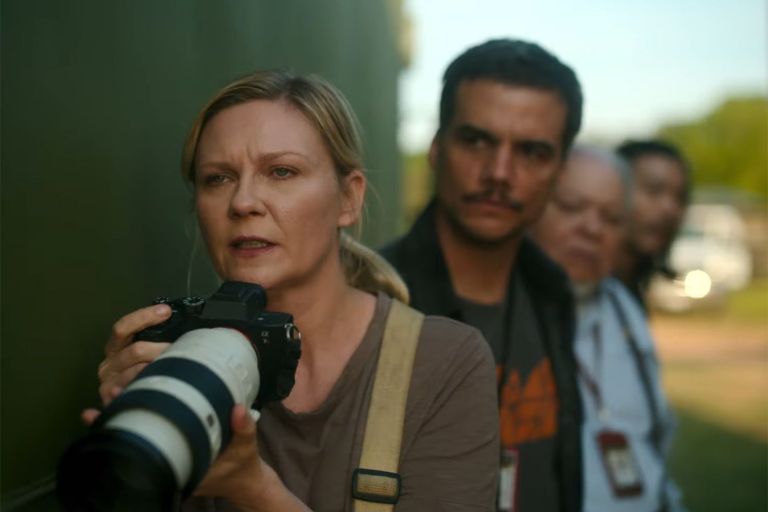
Kirsten Dunst plays a famous war photojournalist whose long career covering the worst of human nature has left her despondent and worn down. When she meets an inexperienced photojournalist, Jessie (Cailee Spaeny), who is hungry to start her career, Lee helps her despite knowing what the work has cost her personally, and what it will likely cost Jessie. It shouldn’t be so rare to see a film with two complex female characters who are not sexualized, but it is, and Civil War was refreshing in this regard.
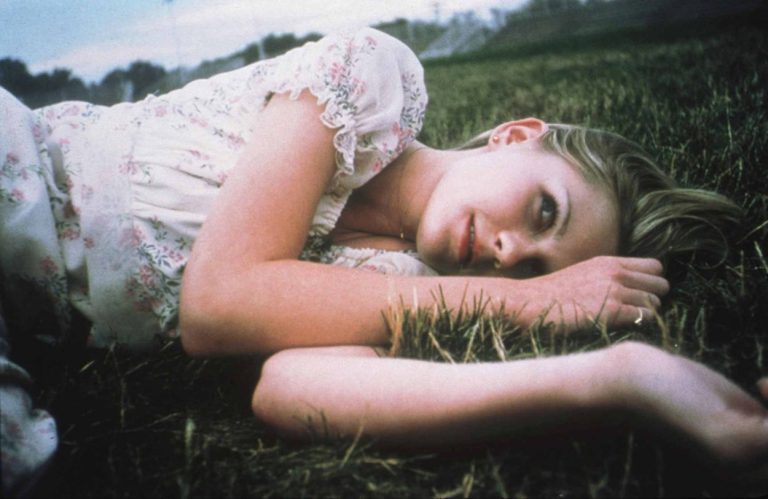
I couldn’t help but think of Dunst’s previous character from The Virgin Suicides (1999), Lux Lisbon, and how her Suicides role felt like a companion to her Civil War role. In the first, her character was hungry to know all that life had to offer. In the second, she knows all of that too well. If Lux Lisbon ever got out of Grosse Pointe, I imagine she would have become someone like Lee Smith. In reality, the character was inspired by real life fashion photographer turned war photojournalist Lee Miller.
2. Beautiful cinematography
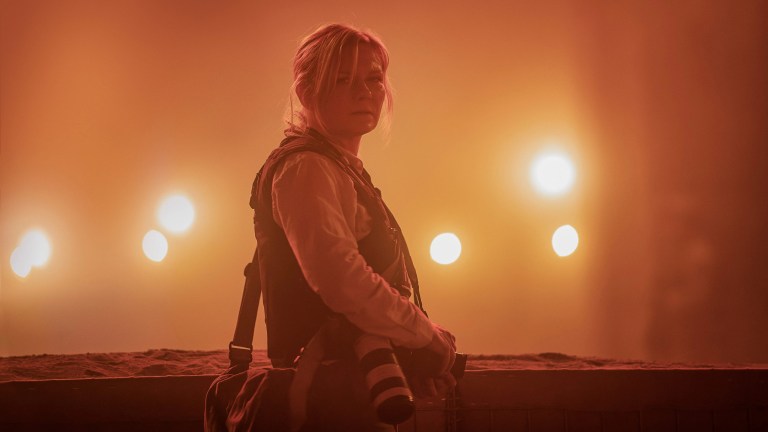
While a major complaint from viewers is that the film is less focused on war than expected, the action sequences in Civil War are great. There’s a bombing scene early in the movie that is shocking and realistic, which is rare as scenes like this are notorious for being far-fetched (think: a slo-mo explosion where the action hero is propelled forward by the blast and lands mostly unharmed). There are also a lot of beautiful scenes that have nothing to do with war. In addition to the flower scene mentioned above, there is an ethereal scene where our lead characters drive through a burning forest, glowing ash embers floating around them.
3. The Jesse Plemons scene was terrifying

This is the scene in Civil War‘s trailer that got me hyped to see this movie. In a confrontation with the journalists, Plemons portrays a man in military clothing who asks “What kind of American are you?” It’s not verified whether this character was an actual member of any military. He wears fatigues, but he wouldn’t be the first unenlisted extreme nationalist to do so.
This scene was perfectly intense and scary. It felt like a realistic peak into a near future where the authorities are busy with war and sadistic extremists are basically free to terrorize whoever they can. An unbelievable fun fact about this scene is that originally another actor was cast in Plemons’ role. When that actor dropped out a week before filming, Kirsten Dunst suggested her husband to Alex Garland. The role seems like it was written with Plemons in mind and he plays the character perfectly.
Spoiler Warning: The rest of this article will contain Civil War spoilers, don’t read on if you have not yet seen it.
4. It doesn’t valorize war
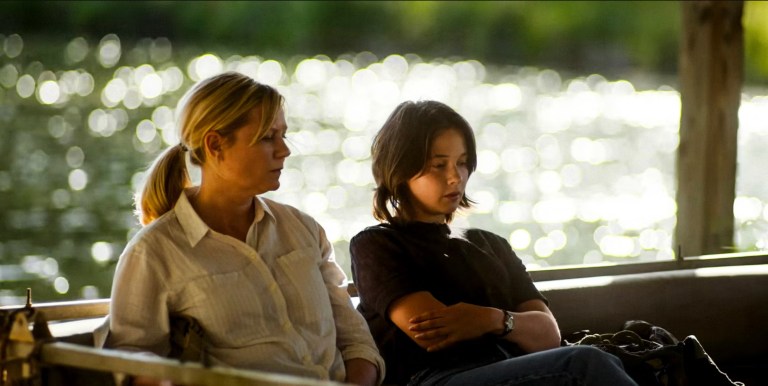
Ostensibly, the good guys win in Civil War. From context clues, we know that the current president is a corrupt authoritarian, and the film ends with his death. However, Civil War definitely doesn’t feel like a “good guys win” blockbuster — in a good way.
The only scene that depicted happy characters was when the journalists stopped at a refugee camp. There, refugees smiled, laughed, shared food and sat in circles talking, caring for children and even playing games. I don’t remember any of the refugees sitting by themselves. This tracks with what I’ve read about how humans come together during a catastrophe.
The absence of recognizable politics in Civil War liberated me from having to consider such a loaded topic at all. Instead, I could focus on the characters and how the film made me feel. It also means that in a politically divided country, people on both sides of the aisle can enjoy the film as (supposedly) we can all agree on being anti-authoritarian.
5. Wagner Moura is so hot in this movie
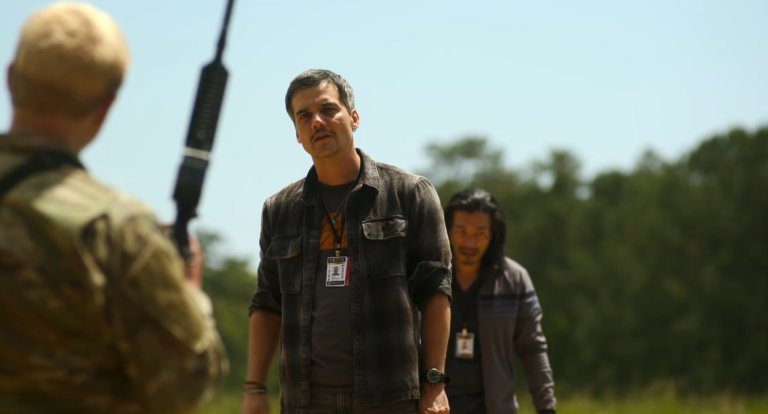
There is a lot of “Wagner Moura is hot” discourse surrounding this movie. I can confirm. As everyone says, Wagner Moura is indeed very hot in this movie. His vodka-toting, chain-smoking writer (a little on the nose, but I’ll allow it) character, Joe, is intent on getting the last interview with the sitting President of the United States. He sets off with Lee Smith and their journalist friend Sammy (Stephen McKinley Henderson) to Washington, D.C. (where journalists are shot on sight) for the interview. Joe also allows aspiring photojournalist Jessie to join them.
Why people might not like Civil War (2024)
1. The marketing doesn’t match the movie
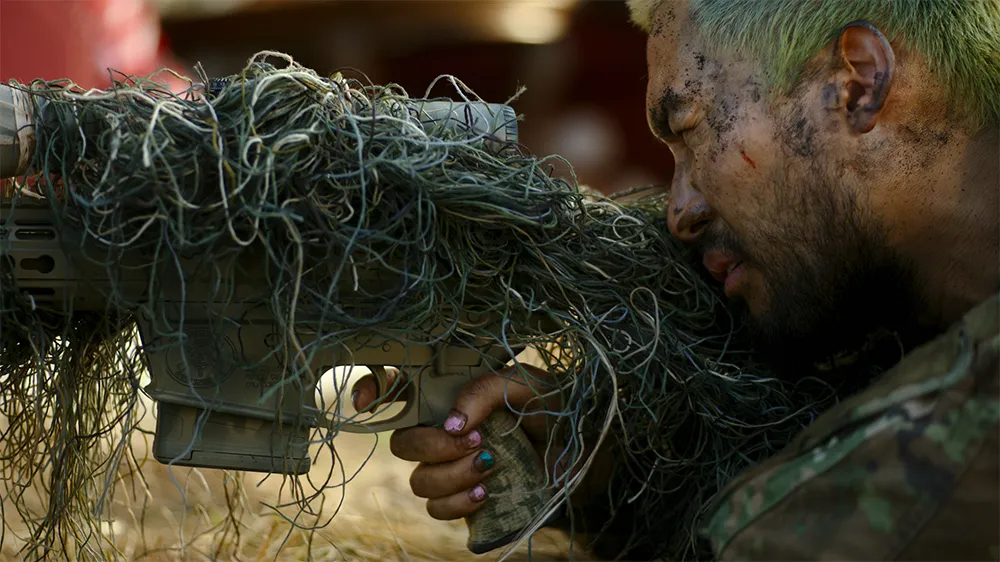
The film’s marketing makes Civil War look like an epic war movie. It’s hard to say the film fails to live up to this premise because the action sequences are actually really good. But in my opinion, the format felt more like a road movie than a war movie.
2. Does Civil War actually tell the audience why California and Texas team up?
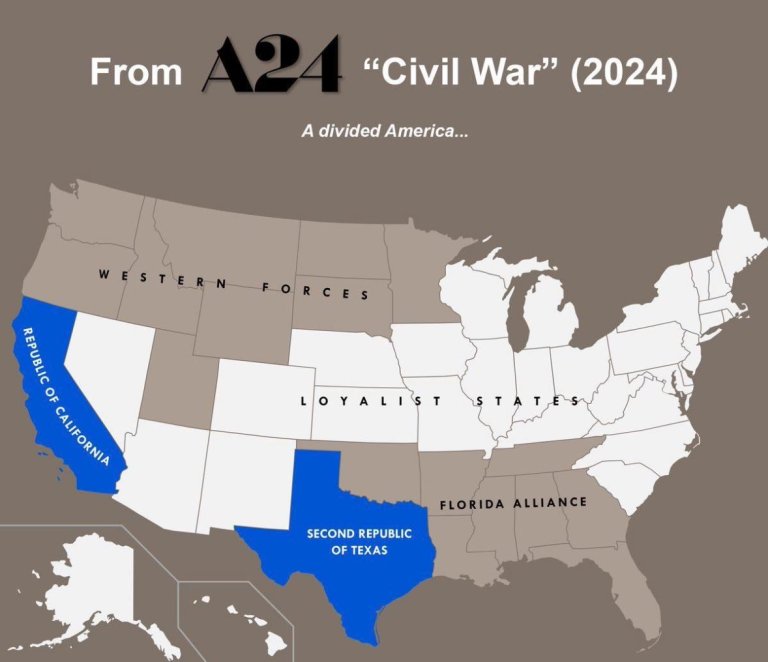
A much discussed aspect of the film’s marketing is the map of the United States that shows California and Texas have joined forces in the country’s second civil war. What could possibly cause a starkly liberal and a staunchly conservative state to be on the same side? Civil War does answer this question, but it is not a very satisfying answer.
The two states team up because an authoritarian political party takes over the country. It’s stated multiple times that the current president is in his third term. This means the ruling party has overturned (or is in violation of) the Constitution’s Twenty-second Amendment limiting presidents to two terms in office. In response, a number of states revolted.
Another important clue is that journalists are shot on sight in the capital, which means the ruling party is interested in blocking its populace from receiving accurate information about the war. This is also shown when characters discuss that the “victory” mentioned by the president is really just the Western Forces waiting until the ideal date of July 4th (Independence Day) to conduct their final assault on D.C., which will end the war.
In my opinion, California and Texas teaming up is a red herring created by the corrupt ruling party and given to the media to disseminate in order to encourage loyalty to the president and make the resistance appear as weak as possible. It makes the most sense that all three groups of “non-loyal” states share the same goal: to free the United States from corrupt leadership. It is not just California and Texas teaming up, but many states revolting against those in power at the same time. They are just labelled in a way that makes them appear divided and weak for propaganda purposes.
3. It caused Alex Garland’s retirement from directing
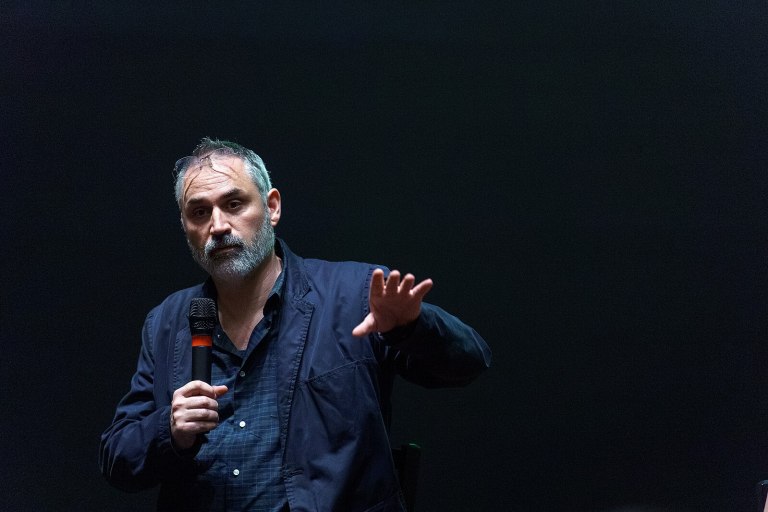
Making this film was such an unpleasant process that writer/director Alex Garland has said he is stepping back from directing for the foreseeable future and will be focusing on writing going forward. This is a legitimate criticism of Civil War because Alex Garland is a great filmmaker.
4. It’s about journalists
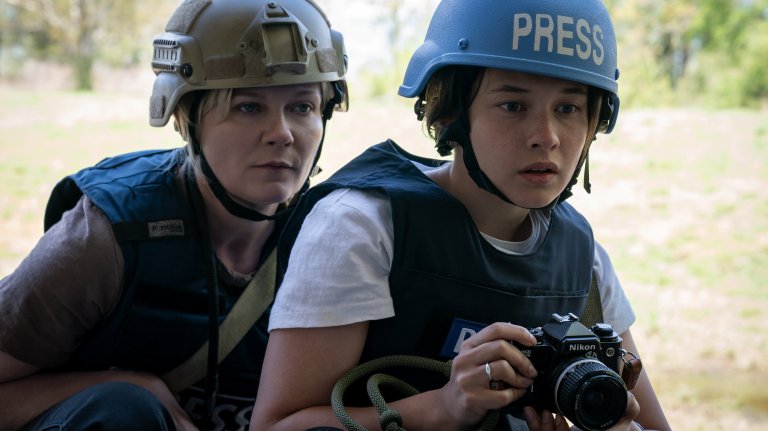
In an era of clickbait, half-truths and publicity narratives disguised as news, I can understand why centering a film around journalists is an unpopular decision. However, I found the characters compelling enough to forgive their vocations. It was interesting to see what war is like from the perspective of regular people, in this case journalists.
5. The weird arc between Joe and Jessie
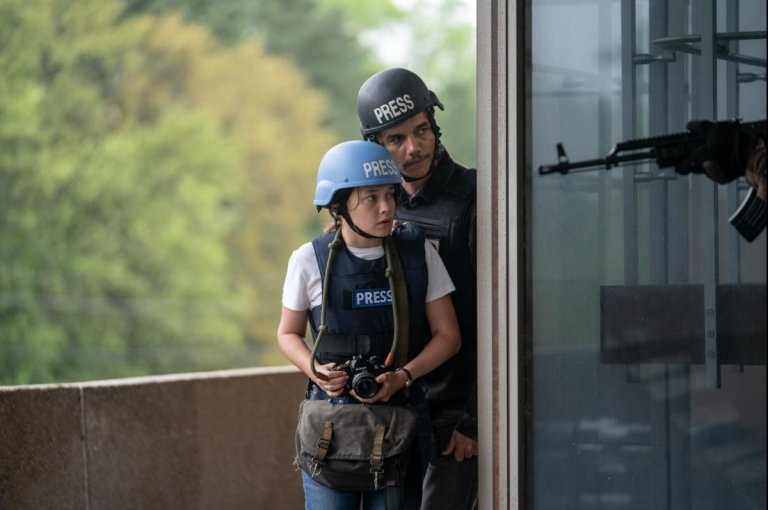
For a few brief moments, I worried that experienced journalist Joe (portrayed by Wagner Moura, who is 47) may take advantage of Jessie (portrayed by Cailee Spaeny, who is 25). This never happens, but it’s a distracting and unpleasant detour, which might be the point. Joe is no hero.
5. The ending

Civil War vaguely feels like Joseph Conrad’s Heart of Darkness, another story about a character who sets out on a treacherous journey to find a doomed enigmatic man. Along the way we see goodness and savagery on both sides of the conflict. For all the effort of the journey, there is little relief when the protagonist finds the man he sought, and the audience mostly feels tired, jaded by the amount of violence and suffering inflicted on others in the name of civilization. If this sounds familiar, Heart of Darkness is also the inspiration for Francis Ford Coppola’s Apocalypse Now (1979).
I can understand why people hate the ending of Civil War because I hated the ending of Heart of Darkness! Just like Heart of Darkness, Civil War ends on a low note. Joe gives up on his dream of a final interview with the president. Satisfied to report his final act of begging for mercy, Joe signals to the Western Forces soldiers to kill the president. The result of all the events of the film are this single quote and the photographs taken by Lee and Jessie. It’s not a lot to show for what the characters have endured, but that return feels realistic.
Further reading:
